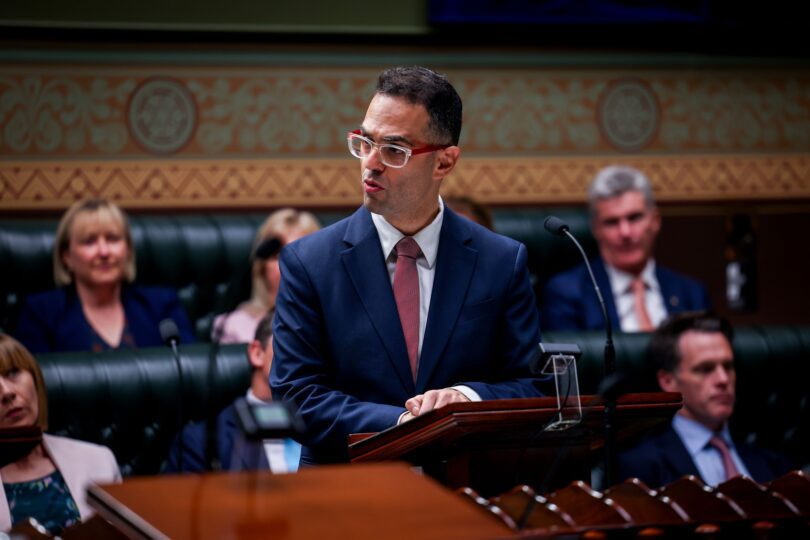A fresh start for New South Wales
Tuesday, 19 September 2023
The 2023-24 NSW Budget sets out the Minns Labor Government’s plan to start the work of repairing the budget in a sustainable way, to rebuild our essential services and to help NSW families with the cost-of-living.
A decade of damage to essential services, failure to fund essential programs and increasing pressures on families cannot be fixed overnight.
This Budget marks the beginning of the long-term plan to address these challenges.
This Budget is only possible because of the careful and responsible approach to budget repair which will ensure the Government can fulfill its commitments without privatising public assets or imposing an unfair wage cap on the workers who deliver our essential services.
Budget Repair
Budget repair begins with a $4 billion improvement in the Budget result over four years.
| 2023-24 | 2024-25 | 2025-26 | 2026-27 | |
| $m | $m | $m | $m | |
| 2023-24 Budget | -7,847 | 844 | 1,582 | 1,508 |
| 2023 PEBU | -7,107 | 328 | 824 | -1,918* |
| Difference | -740 | 516 | 758 | 3,426 |
*Not published at PEBU. Based on internal estimates to review the 2026-27 Budget position ahead of publication.
The Budget is forecast to return to a modest $844 million surplus in 2024-25 after five years of deficits under the Liberals and Nationals. Achieving this still remains a difficult task.
The 2023-24 Budget reduces the growth of debt by $14.8 billion by 2025-26. Reducing debt will save taxpayers $2.3 billion of interest, which will be redirected to supporting essential services.
The Comprehensive Expenditure Review redirected $13 billion towards essential services and cost-of-living relief for families. Key savings included:
- Over $700 million from freezing the pay of politicians and reducing the number of senior executives.
- $530 million by reducing consultants and labour hire.
- $111 million by merging planning functions of the Greater Cities Commission and Western Parkland City Authority into the Planning Department.
- $527 million by ending EV subsidies and directing new funds to programs that work better.
This is on top of a $2.7 billion budget improvement from increasing coal royalties, $4.3 billion reduction in net debt from restructuring TAHE and a $7.7 billion gross debt reduction from temporarily suspending contributions to the NSW Generations Fund.
This budget repair has allowed us to direct funds into programs that work and begin rebuilding essential services and investing in the people who provide them. This includes:
- $3.6 billion for the Essential Services Fund.
- $13.8 billion on hospital and health facilities.
- $9.8 billion on schools and education facilities.
- $1.4 billion to support 2,312 nurses and 500 new rural and regional paramedics.
- $4 billion in natural disaster support and response programs (a component is eligible for co-funding with the Australian Government under the Disaster Recovery Funding Arrangements).
Our plan to rebuild essential services is only possible because of the careful and responsible approach to repair the budget without privatising our essential assets or imposing an unfair wages cap on our workforce.







